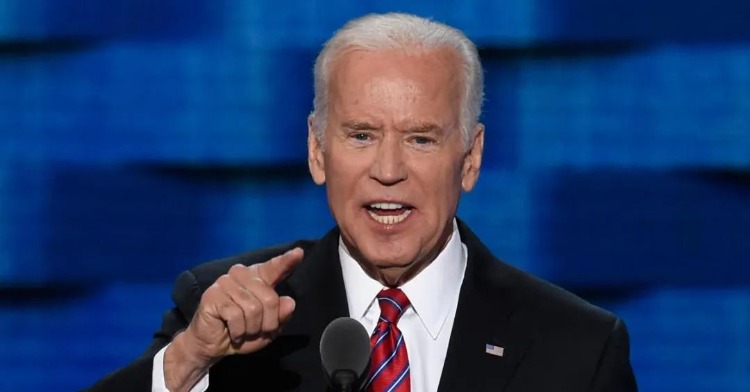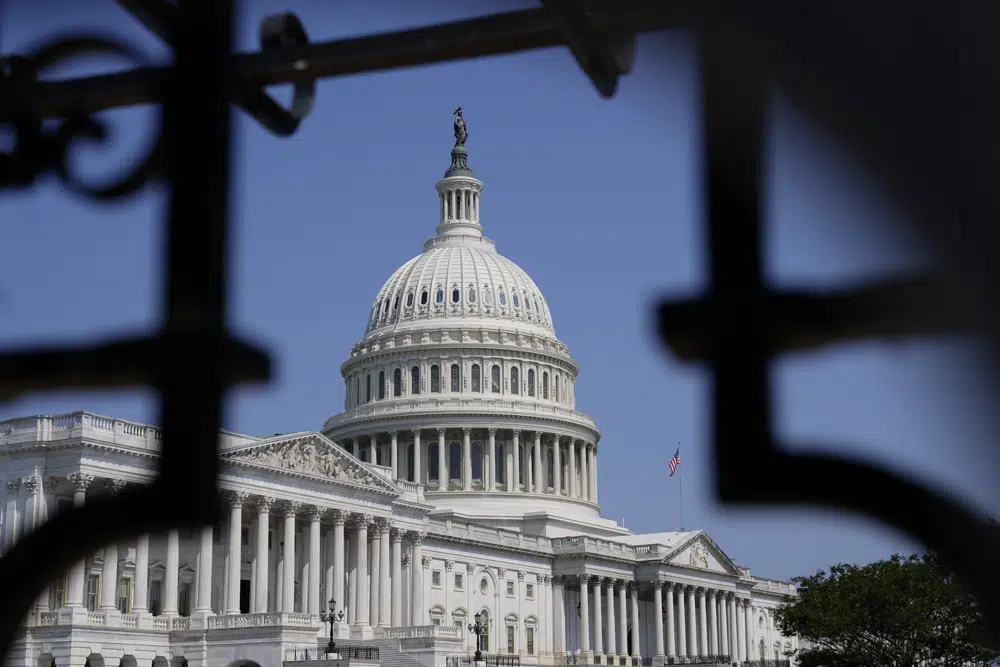Washington is facing a critical moment as the US government is on the verge of a debt crisis that could devastate the nation’s economy. The situation has forced President Joe Biden and House Speaker Kevin McCarthy to meet at the White House to avert the looming disaster.

The two leaders are working to strike a budget compromise and raise the nation’s borrowing limit before a deadline of June 1, when the government may run out of cash to pay its bills. This meeting is crucial, and both Biden and McCarthy are optimistic about coming to an agreement.
After a weekend of negotiations, the talks have narrowed down to a 2024 budget year cap, which is key to resolving the standoff. Republicans want next year’s spending to stay at current 2023 levels, while Democrats have rejected the steeper cuts proposed by McCarthy’s team. However, both leaders are confident they can find a compromise to keep the country from defaulting on its debts.
The stakes are high, and the negotiations have already affected financial markets, which turned downward last week due to the uncertainty of the talks. A budget deal would unlock a separate vote to lift the debt ceiling, currently at $31 trillion, allowing for more borrowing to pay previously incurred bills. Treasury Secretary Janet Yellen has warned that June 1 is a “hard deadline.”
Biden and McCarthy spoke by phone Sunday as the president was returning home from the Group of Seven summit in Japan. Although they gave little information about the call’s specifics, both leaders appeared positive, with McCarthy calling the conversation “productive.” They are set to meet on Monday, and this meeting is critical for finding a resolution.
If they reach an agreement, it would be a significant victory for Biden and McCarthy in an era of divided government. While the negotiations remain complicated, the fact they are continuing is a positive sign. The White House has stated they will keep working towards a compromise. Still, a lot is at stake, and this meeting will determine the nation’s economic future.
The tense budget negotiations between President Joe Biden and House Speaker Kevin McCarthy continue to play out as they race against a deadline to strike a deal. The looming threat of a federal default has riled financial markets and put major pressure on both sides to find common ground.
McCarthy has kept his negotiations focused on cutting spending, insisting that “we have to spend less money than we spent last year.” While Biden has agreed to significant cuts in spending, he has made it clear that he will not accept a deal on purely partisan terms. Biden has insisted that Republicans “move off their extreme positions” and accept that there can be no agreement without concessions from both sides.
The Republicans have been holding tight to demands for sharp spending cuts, with caps on future spending and work requirements on the Medicaid health care program. The Democrats have countered that millions of people could lose coverage under these demands, and as such, any changes to work requirements for government aid are non-starters.
The GOP has also proposed new cuts to food aid by restricting states’ ability to waive work requirements in high-unemployment areas, while the White House has countered by keeping defense and non-defense spending flat next year, saving $90 billion in the 2024 budget year and $1 trillion over 10 years.
The negotiations have narrowed down to a 2024 budget year cap, with Republicans wanting to roll back next year’s spending to 2022 levels and the White House proposing to keep 2024 the same as it is now, in the 2023 budget year. The initial Republican proposal sought 10 years of spending caps but has since narrowed to approximately six years, while the White House wants a two-year budget deal.
A compromise on those topline spending levels would enable McCarthy to deliver for conservatives without chasing off the Democratic votes that would be needed in the divided Congress to pass any bill. Additionally, all sides have been eyeing the potential for the package to include a framework that would speed up energy project developments.

The stakes are high, and the negotiations continue to be challenging, with all parties acknowledging that there is no agreement on anything yet. However, the fact that talks are ongoing is a positive sign, and both sides remain optimistic that a deal can be struck before the looming deadline that could see the nation default on its debts.
And despite a push by Republicans for the White House to accept parts of their proposed immigration overhaul, McCarthy indicated the focus was on the House’s previously approved debt and budget package.
Republicans had also rejected various White House revenue proposals, with McCarthy insisting personally in his conversations to Biden that tax hikes are off the table.
For months, Biden had refused to engage in talks over the debt limit, contending that Republicans in Congress were trying to use the borrowing limit vote as leverage to extract administration concessions on other policy priorities.
But with the June 1 potential deadline looming and Republicans putting their own legislation on the table, the White House launched talks on a budget deal that could accompany an increase in the debt limit.
McCarthy faces a hard-right flank that is likely to reject any deal, which has led some Democrats encouraging Biden to resist any compromise with the Republicans and simply raise the debt ceiling on his own to avoid default.
The president, though, said he was ruling out the possibility, for now, of invoking the 14th Amendment as a solution, saying it’s an “unresolved” legal question that would become tied up in the courts.
